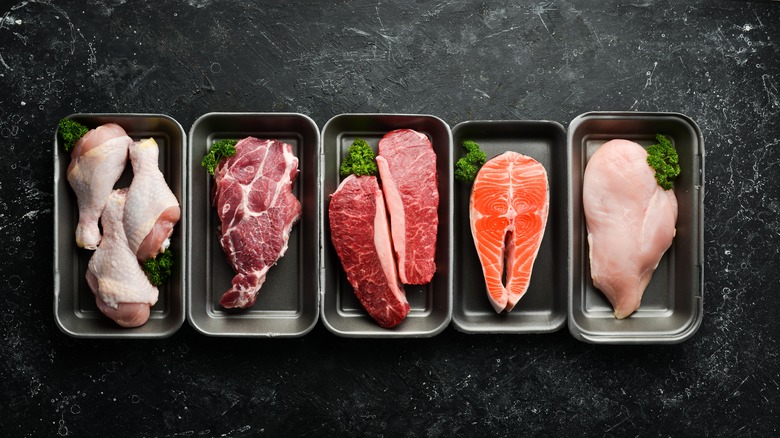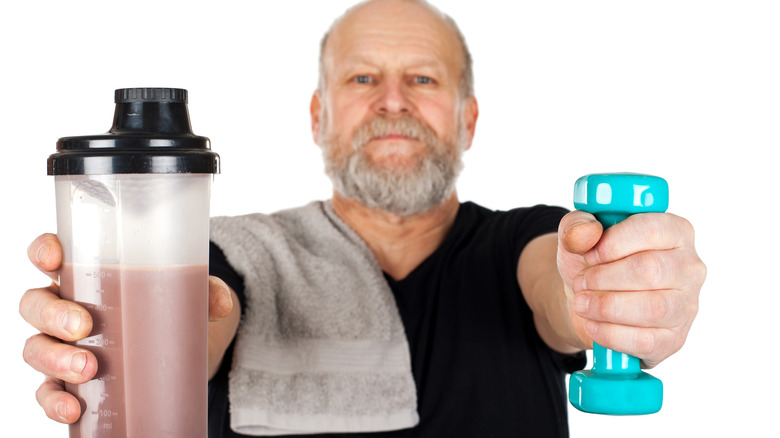How Animal Proteins Affect The Way You Age
Getting enough protein is essential for healthy growth and development at every stage of life. During the first couple of decades of life when rapid growth, strengthening, and muscle development occur, many people understandably make an effort to get plenty of protein. There's solid science behind this — protein is a vital macronutrient, and adequate amounts are essential for the optimum development of all sorts of vital processes. This includes muscle development, hair, skin, and nail growth, connective tissues, antibodies, and more.
Often, the bulk of daily protein needs is met through animal proteins, such as meat, poultry, eggs, and dairy products. These protein powerhouses, especially in their minimally processed forms, contain all of the essential amino acids your body needs but can't produce on its own (via US News & World Report).
However, at some point in our 30s, things change. Functional medicine doctor Dr. Frank Lipman, author of The New Rules of Aging Well, describes the shift to MindBodyGreen as a move from "production" of muscle mass, to "preservation" of it. This impacts not only the amount but the ideal type of protein we need to consume daily.
Increased protein and exercise can help preserve muscle mass
Animal protein contains substantial amounts of an amino acid called thymine, which actually stimulates a gene that (indirectly) hinders longevity. That doesn't mean you're guaranteed to make it to 100 if you become vegan at age 40. However, even a small shift to decrease animal protein and increase plant-based proteins in mid-life could make a positive health difference. "It's a good idea as you get older to switch from animal protein to plant," Dr. Lipman told MindBodyGreen. "[Plant-based protein] doesn't have that negative effect on aging that animal protein does."
Perhaps counterintuitively, protein needs actually increase again during the senior years, when sarcopenia — or the gradual loss of muscle mass — begins to accelerate. "You don't want to lose muscle mass, so your protein needs to increase," Dr. Lipman continued.
The Dietary Reference Intake report from the National Institute of Health generally recommends that adults get a minimum amount of 0.36 grams of protein per pound of body weight. That amounts to approximately 50 grams per day for a 140-pound individual, or 65 grams per day for a 180-pound person. However, individual protein needs vary according to a person's age, sex, activity level, and personal nutrition needs.
One thing experts widely agree on is that adequate protein intake, combined with regular resistance-training exercise, increases strength and decreases muscle loss at any age.


